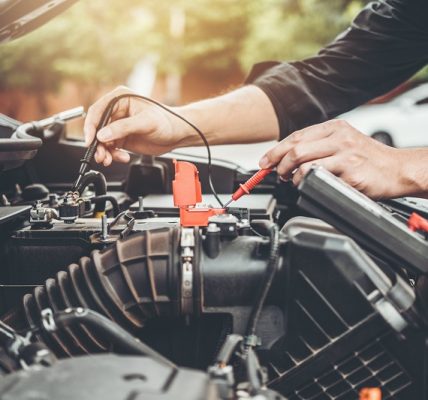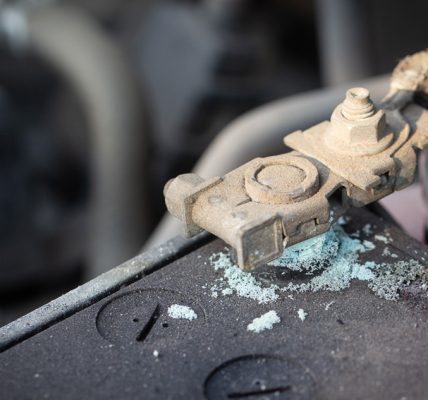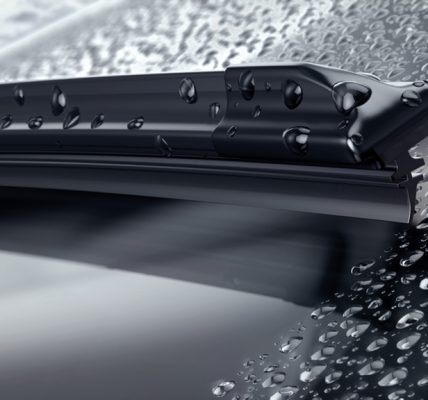When it comes to taking care of your vehicle, there are two fundamental aspects to consider: maintenance and repair. These terms are often used interchangeably, but they refer to distinct processes that play vital roles in keeping your car running smoothly. In this article, we’ll dive deep into the difference between auto maintenance and repair, their importance, and how they contribute to your vehicle’s overall health and longevity.
The Importance of Vehicle Care
Before we delve into the differences between maintenance and repair, let’s first underscore the significance of proper vehicle care. Your car is more than just a means of transportation; it’s an investment that requires regular attention and upkeep. Proper care not only ensures your safety on the road but also helps maintain the value of your vehicle over time.

Difference Between Auto Maintenance and Repair
The key differences between auto maintenance and repair:
| Feature | Auto Maintenance | Auto Repair |
| Purpose | To prevent problems and keep your car running smoothly | To fix problems that have already occurred |
| Frequency | Regularly scheduled | As needed |
| Examples | Oil changes, tire rotations, brake inspections | Replacing a broken belt, fixing a leaking radiator, repairing a flat tire |
| Cost | Typically less expensive | Can be more expensive, depending on the severity of the problem |
| Importance | Essential for prolonging the life of your car | Important for keeping your car safe and reliable |
Clarifying the Distinction: Maintenance vs. Repair
At a glance, maintenance and repair might seem like two sides of the same coin. However, they serve distinct purposes:
Understanding Auto Maintenance
Maintenance serves as the bedrock for your car’s longevity. Regular maintenance tasks are designed to prevent issues before they escalate into major problems.
Preventive care is the essence of maintenance. By adhering to a regular maintenance schedule, you can identify potential issues early and take steps to address them before they become major headaches.
Essential Maintenance Tasks Every Car Owner Should Know
There are several key maintenance tasks that every car owner should be familiar with. These tasks include:
- Oil Changes: Keeping the Engine Lubricated Regular oil changes ensure that your engine remains properly lubricated, reducing friction and preventing excessive wear and tear.
- Tire Care: Maximizing Traction and Efficiency Proper tire maintenance, including regular rotations and maintaining the right tire pressure, ensures optimal traction and fuel efficiency.
- Brake Inspections: Ensuring Safe Stops Regular brake inspections help catch brake pad wear and other issues, ensuring your ability to stop safely when needed.
- Fluid Checks: Maintaining Optimal Performance Checking and topping up essential fluids such as coolant, transmission fluid, and brake fluid helps maintain your vehicle’s overall performance.
- Battery Health: Avoiding Unforeseen Breakdowns Monitoring your battery’s health and replacing it when necessary prevents unexpected breakdowns.
- Air Filter Replacement: Clean Air, Smooth Ride Regular air filter replacements keep the air flowing into your engine clean, leading to better fuel efficiency and engine performance.
Exploring Auto Repair
While maintenance focuses on prevention, repair comes into play when something has already gone wrong. Repair tasks aim to correct specific problems and restore your car to its optimal state.
Signs Your Vehicle Might Need Repair
Several signs indicate that your vehicle might require repair:
- Strange Noises: Decoding Clunks and Rattles Unusual sounds can be indicators of underlying issues. Sudden clunks, rattles, or grinding noises warrant attention.
- Warning Lights: Interpreting Dashboard Indicators Dashboard warning lights can illuminate for various reasons, such as engine trouble, ABS issues, or low oil pressure.
- Performance Changes: Power Loss, Rough Idling, and More If you notice a significant drop in power, rough idling, or poor fuel efficiency, it’s time to investigate.
Diving into Maintenance and Repair Differences
The primary distinction between maintenance and repair lies in their approaches. Maintenance is proactive, focusing on preventing problems, while repair is reactive, aiming to fix existing issues.
Maintenance follows a scheduled routine, whereas repair often requires immediate attention when a problem arises.
Investing in regular maintenance is usually more cost-effective than dealing with the expenses of major repairs caused by neglected issues.
Auto Maintenance in Detail
Many maintenance tasks can be done by car owners themselves, saving money and helping you become more familiar with your vehicle.
For more complex maintenance tasks or when you lack the time and tools, seeking a trusted mechanic’s help is crucial.
Maintaining a record of your maintenance tasks helps track your vehicle’s health over time and can be beneficial when selling the car.
A well-maintained vehicle with a comprehensive maintenance history often holds a higher resale value.
Auto Repair in Detail
Repair starts with diagnosing the root cause of a problem, often requiring specialized tools and knowledge.
While DIY repairs can save money, complex issues are best left to professional repair shops to ensure proper and safe fixes.
Repair costs can vary widely depending on the extent of the issue and the parts needed.
Ignoring repairs can lead to more extensive damage and potentially compromise your safety on the road.
Overlap and Intersection: When Maintenance Turns into Repair
Neglecting routine oil changes can lead to engine damage, showcasing how maintenance tasks, if ignored, can turn into repair needs.
Regular maintenance significantly reduces the chances of minor issues evolving into costly repairs.
When to Opt for Maintenance and Repair
Adhering to the manufacturer’s recommended maintenance schedule ensures your car’s optimal performance.
When deciding between maintenance and repair, consider the impact on your vehicle’s safety and functionality.
The Role of Professionals
Certified technicians possess the expertise to diagnose issues and perform maintenance and repairs effectively accurately.
When in doubt about whether a problem requires maintenance or repair, seeking advice from a professional can provide clarity.
Learning basic maintenance tasks and understanding common repair needs empowers car owners to make informed decisions.
How Maintenance and Repair Work Together

Maintenance sets the stage for a trouble-free driving experience by preventing issues before they occur.
Repair steps in when unforeseen problems arise, swiftly addressing them to restore your vehicle’s functionality.
Conclusion
In the world of automobiles, both maintenance and repair play critical roles in keeping your vehicle operating at its best. By understanding the difference between auto maintenance and repair, you can ensure your cherished vehicle’s longevity, safety, and value.
FAQs (Frequently Asked Questions)
Q1: How often should I perform maintenance on my vehicle?
Routine maintenance tasks should be performed according to the manufacturer’s recommendations, usually outlined in the owner’s manual.
Q2: Can I skip regular maintenance and only address issues when they arise?
While it’s possible, neglecting regular maintenance can lead to more significant and costly issues.
Q3: Are there maintenance tasks I can do on my own?
Yes, many basic maintenance tasks, such as checking fluids, changing air filters, and rotating tires, can be done by car owners.
Q4: How can I find a trustworthy mechanic for professional maintenance and repairs?
Ask for recommendations from friends or family, read online reviews, and visit local repair shops to understand their expertise and professionalism.
Q5: Should I invest in maintenance if I plan to sell my car shortly?
Absolutely. A well-maintained vehicle with a documented maintenance history is more attractive to potential buyers and can command a higher resale value.





